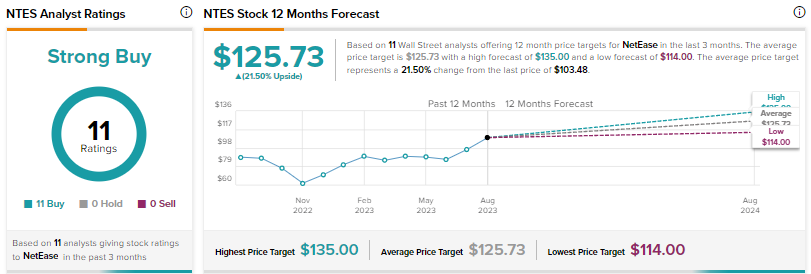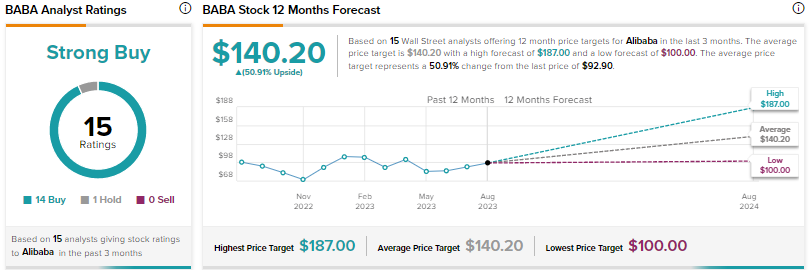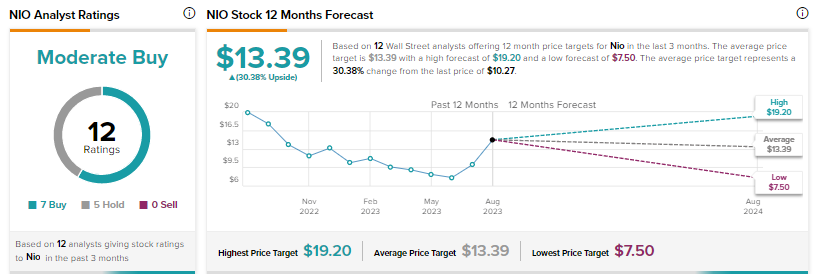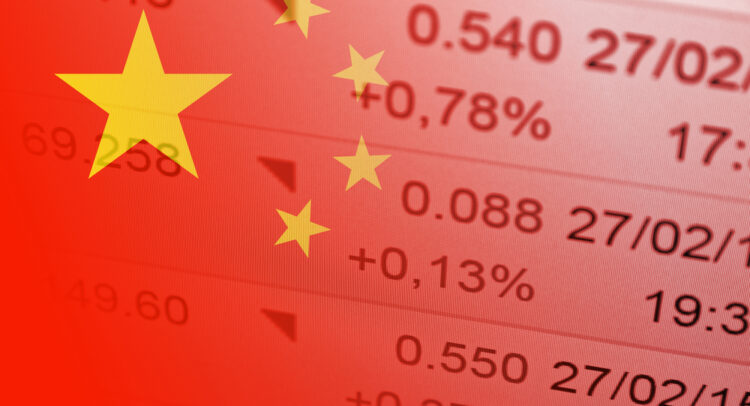China’s economic recovery following the lifting of COVID-19 lockdowns did not turn out to be as expected. The Chinese government is implementing stimulus measures to revive business in the country. On Friday, China’s central bank announced a cut in reserve requirements to boost the economy. Despite near-term pressures, Wall Street is bullish on several Chinese stocks based on their long-term growth potential. We used TipRanks’ Stock Comparison Tool to place NetEase (NASDAQ:NTES), Alibaba (NYSE:BABA), and Nio (NYSE:NIO) against each other to find the most compelling Chinese stock as per Wall Street analysts.

NetEase Stock (NASDAQ:NTES)
NetEase, one of the leading developer and operator of games in China and an internet services provider, recently reported mixed results for the second quarter of 2023. The company’s adjusted earnings grew to $1.93 per American Depositary Share (ADS) from $1.14 per ADS in the prior-year quarter and exceeded expectations. Meanwhile, revenue grew 3.7% to RMB24 billion ($3.3 billion) but lagged estimates.
Revenue from Games and related value-added services, the largest top-line contributor for NetEase, grew 3.6%. However, the overall Q2 2023 revenue growth was adversely impacted by the 11% decline in Cloud Music revenue.
Looking ahead, the company’s third-quarter revenue is expected to benefit from the gaming titles released in June, including Justice and Racing Master.
Is NetEase a Good Stock to Buy?
On Wednesday, JPMorgan analyst Daniel Chen increased his price target for NetEase to $125 from $120 and maintained a Buy rating on the stock. The analyst expects the company’s structural margin expansion and game revenue acceleration in the second half of the year to drive continued share price upside. NetEase remains JPMorgan’s top pick in the China online gaming market.
Wall Street has a Strong Buy consensus rating on NetEase stock based on 11 unanimous Buys. The average price target of $125.73 implies 21.5% upside. NTES shares have rallied over 42% year-to-date (as of August 31).

Alibaba Stock (NYSE:BABA)
Chinese e-commerce behemoth Alibaba announced stellar results for the first quarter of Fiscal 2024 (June quarter). Revenue increased 14% to RMB234.2 billion ($32.3 billion), marking an increase of 14% year-over-year. Adjusted earnings per ADS increased 48% to RMB17.37 ($2.40).
The company’s key business, the Taobao and Tmall Group, generated revenue growth of 12% in Q1 FY24. Further, the company’s expansion into overseas markets drove 60% growth in its international commerce retail revenue.
Overall, Alibaba’s efficiency and solid business momentum helped to deliver better results. Earlier this year, the company announced that it would restructure the organization into six units and that each unit could seek a separate initial public offering (IPO).
Alibaba is also optimistic about artificial intelligence (AI) services- related demand to drive long-term growth. Since the success of OpenAI’s ChatGPT, several Chinese companies, including Alibaba, have announced significant investments in generative AI.
What is the Prediction for BABA Stock?
In reaction to the results, UBS analyst Jerry Liu increased his price target for Alibaba to $120 from $110 and reiterated a Buy rating on August 11. Liu noted that revenue growth reaccelerated to double digits year-over-year for the first time since Q2 FY22, driven by macro recovery, traction with the new Taobao strategy, and improved focus and localization in the international e-commerce business.
Alibaba scores a Strong Buy consensus rating, backed by 14 Buys and one Hold. The average price target of $140.20 implies about 51% upside potential. The U.S.-listed shares of Alibaba have risen 5.5% year-to-date.

Nio Stock (NYSE:NIO)
This week, electric vehicle (EV) maker Nio announced dismal second-quarter results, with revenue declining 15% year-over-year to RMB8.8 billion ($1.2 billion). Net loss per ADS widened to RMB3.28 (or $0.45) from RMB1.34 in the prior-year quarter.
The company’s Q2 2023 performance was impacted by lower average selling prices and a decline in volumes due to intense competition and challenging macro conditions in China. Moreover, the product transition to the company’s NT2.0 Platform also weighed on the results.
However, Nio’s Q3 2023 outlook and management’s commentary about strong growth in deliveries in the second half of 2023 were encouraging. The company anticipates third-quarter deliveries in the range of 55,000 to 57,000 EVs, which reflects year-over-year growth of 74% to 80.3%.
The company’s July and August deliveries reflect the expected year-over-year improvement in the third quarter deliveries. Nio delivered 20,462 vehicles in July 2023, reflecting a 103.6% year-over-year jump. Today, Nio reported deliveries of 19,329 units for August, up 81% year-over-year but down compared to July deliveries.
Is Nio a Buy or Sell Right Now?
On Wednesday, Mizuho analyst Jason Getz lowered his price target for Nio to $18 from $20 but reiterated a Buy rating on the stock. Getz said the company issued a “good” September outlook, backed by gross margin tailwinds from a favorable mix and production ramps. While the analyst cautioned that macro weakness in China remains, he believes that Nio is well positioned to benefit from the electrification trend, supported by its growing portfolio.
Wall Street’s Moderate Buy consensus rating on Nio stock is based on seven Buys and five Holds. At $13.39, the average price target implies 30.4% upside potential. Shares have advanced 5.3% so far this year.

Conclusion
Wall Street is highly bullish on NetEase and Alibaba but cautiously optimistic about Nio. While the U.S.-listed shares of NetEase have outperformed Alibaba and Nio year-to-date, analysts see higher upside potential in Alibaba stock from current levels.
As per TipRanks’ Smart Score Tool, Alibaba scores a Perfect 10, implying that the stock could outperform the broader market over the long term.
















